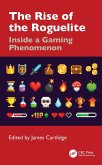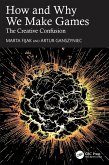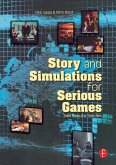This book examines how World War Two is simulated through serious computer games, such as first-person shooters, flight and tank simulators, and grand strategy games. It argues that a particular dynamic emerges in these 'simgames', especially when curious players begin to look beyond gameplay for how to understand the past. This points them toward a wide range of 'simtexts'-anything from game manuals or online resources such as YouTube, to published material in the popular sphere or even monographs by professional historians. This is important because major events like World War Two continue to feature in a wide range of game genres, and this engagement demonstrates how we are learning about the past outside of traditional mechanisms such as classrooms, teachers or textbooks.
Utilizing interdisciplinary methods, this volume foregrounds the experience that simgames provide to players, especially in how they reconfigure and reimagine history. Despite its visceral power and instructive potential, the simulated digital experience created by simgames curates World War Two and other global events of similar magnitude within constrained frames that ignore much of what actually happened in the past. This suggests that as computer games continue to increase in power and fidelity-as seen with the expanding scope of virtual reality-then the range of what can be simulated will grow too. This will raise concerns about what is morally acceptable to be simulated, and what should remain unplayable.
Utilizing interdisciplinary methods, this volume foregrounds the experience that simgames provide to players, especially in how they reconfigure and reimagine history. Despite its visceral power and instructive potential, the simulated digital experience created by simgames curates World War Two and other global events of similar magnitude within constrained frames that ignore much of what actually happened in the past. This suggests that as computer games continue to increase in power and fidelity-as seen with the expanding scope of virtual reality-then the range of what can be simulated will grow too. This will raise concerns about what is morally acceptable to be simulated, and what should remain unplayable.
Dieser Download kann aus rechtlichen Gründen nur mit Rechnungsadresse in A, D ausgeliefert werden.









